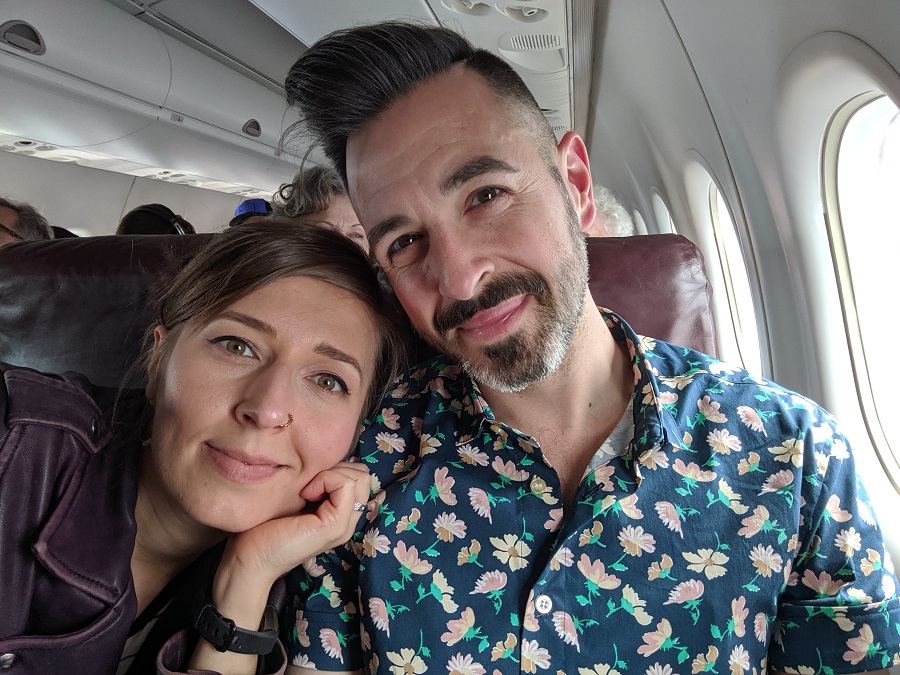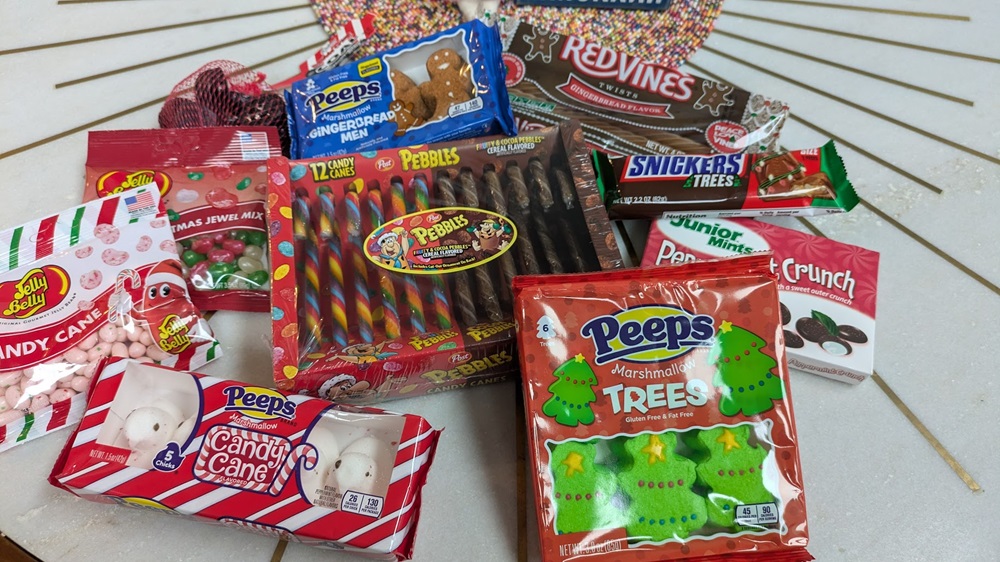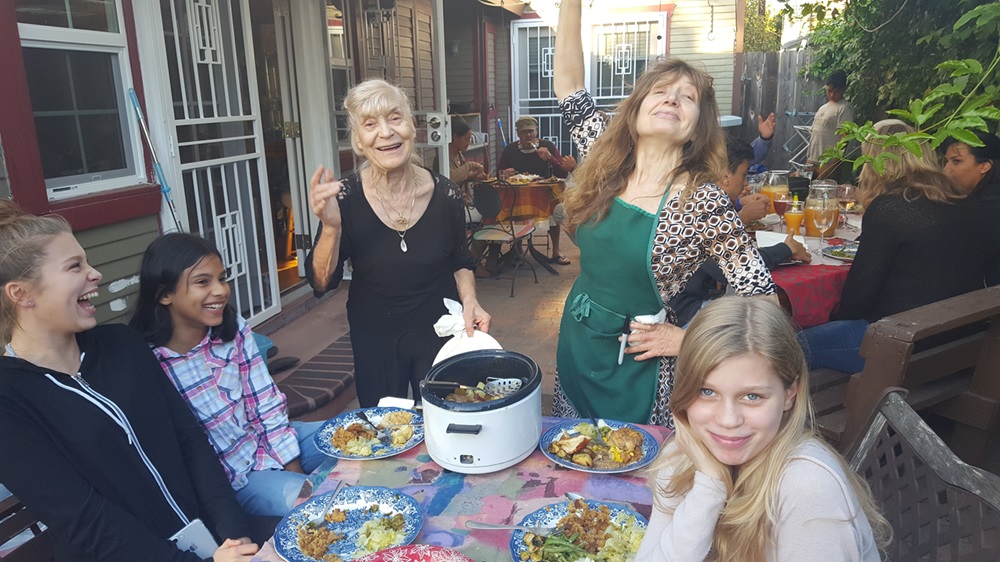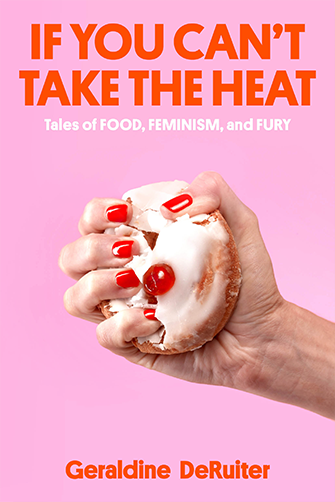40 Things For His 40th Birthday

My husband turned 40 at the beginning of July. I wanted a Bacchanalian celebration, cake and lights and streamers and swarms of people, forgetting entirely that this milestone wasn’t about me. The realization would hit me eventually, before too much planning had occurred: he didn’t want a big to-do. Nor did he want, he insisted, anything in particular for his birthday – his wishlist was entirely blank.
I nodded, but had been planning a gift for him anyway – something unexpected and fun, but not so expensive or over-the-top that I couldn’t squeeze something else in should he suddenly decide (as he occasionally did) that there was something he wanted. Predictably, a few days before his birthday, he excitedly told me he’d figured out what I could get him for a present.
“For my fortieth birthday,” he said, with a slight dramatic pause, “I would like you to give away forty things.”
I grabbed my chest like someone in a Spaghetti Western who’d just been shot. I insisted that this was not how things worked. Birthdays presents cannot be negative space. They cannot be the absence of something but the presence of it. They are about frivolity and the unexpected.
“I want you to give away forty things,” he said again. “That is what I want for my birthday.”
My husband would describe himself as a minimalist. I would describe him as a heartless sociopath when it comes to material possessions. I’ve seen him open up cards from his 90-something year old grandparents, smile affectionately as he reads the contents, and then gently fold the letter up and put it in the recycling bin.
“You can’t keep everything,” he tells me often.
“Yes,” I reply. “But surely you can keep some things.”
Before I go any further, let me absolve myself of the inherent accusations of hoarding that will necessarily accompany a request such as his: I genuinely and truly don’t think I have that much stuff. I realize that most hoarders say this, but IT. IS. TRUE. I’m constantly running out of clean underwear, I tell him, which I feel like is a testament to the fact that I don’t have enough pairs.
Still, I will concede: I am far from a minimalist. My adolescent and teen years occurred in the 90s, a decade during which young people were accumulating worthless items with the enthusiasm of squirrels stowing away nuts for the upcoming winter. “Come over and see my sticker/pencil/troll doll collection” young people would say to each other, and then we would silently judge one another on the quality and neatness of entirely worthless caches. Social hierarchies were established on who had amassed the heftiest pile of Lisa Frank accouterments.
“How do you expect me to have friends when my ceramic owl collection is just pitiful?” I tell Rand tearfully. He stares at me for a long time without speaking.
“Look,” I whisper to my husband as I throw things into the trash. “Look how I purge.”
“Those things are garbage,” he tells me. “Throwing away garbage is not something to be lauded. It is what you are supposed to do with garbage.”
His request is not unreasonable. Our home is a sprawling thing. Finding 40 items to give away should be easy, but the problem is that I have just purged well more than that recently. I have tossed things from my closet, I have cleaned out my jewelry drawers, I have gone through those boxes in the basement that have remained unopened since we moved. But these things can’t count. They wouldn’t be a birthday present if they did.
And so I start again. This time with objects that I want to keep, but that Rand hates.
I have, in the last few years, developed the delightful hobby of tormenting my husband with photos of objects from the Goodwill, threatening to buy them. Occasionally, but not always, I do – (the inconsistency, I’ve found, creates more anxiety). But sometimes just the threat of buying something is torment enough.
I left the giant mug and demon painting, but bought the chip bowl shaped like a hat. Whenever I used it, Rand would groan like a old door.
“Please,” he said, “Get rid of that thing.”
For his birthday, I finally agree to.
“It should count as more than one thing,” I tell him as I pull it out of the cabinet.
“It counts as one,” he replies. I have married a monster.
“Do shoes count as two distinct objects?” I ask. They do not.
I hold up a free promotional key chain and ask if it qualifies. Rand stares at me blankly. That is trash, he tells me. Why do I even have that? I sigh.
My memory is a vast thing. This should make things easier to throw things out, shouldn’t it? I should retain stories and not things. Instead, objects serve as a sort of external hard drive – I can’t throw them out without recalling why I’ve kept them for this long. I don’t know how other people’s memories work – but fittingly for a child raised on television, mine plays out like a clip show. Here are the earrings I was wearing on the night Rand proposed. The watch he gave me for Christmas, 2001. The program from the show we saw when he took me to New York for the first time. If I close my eyes, I can revisit those moments again and again. If throw those items out, does the memory go with them?
I keep these things, of course. Better not to risk it.
I think about how quickly my stepmother cleaned out my father’s workshop after he died. I think about the desk where he spent so much time and how bare it looked afterwards. I wonder what happened to his things. I think about the fire that tore through my mother’s home, burning all the letters he sent me. I want to tell Rand I’ve given away more than forty things in recent years, but that would defeat the purpose of the gift. Instead, I place the chip bowl into the giveaway pile, along with precisely 39 other items. My husband beams at me, and I stare at his face, trying to remember every detail.









